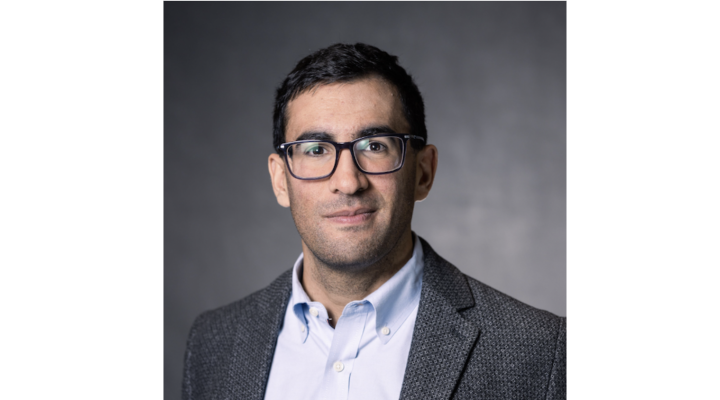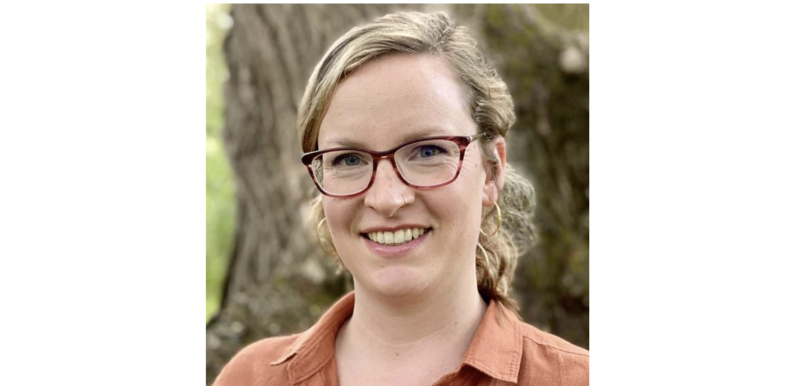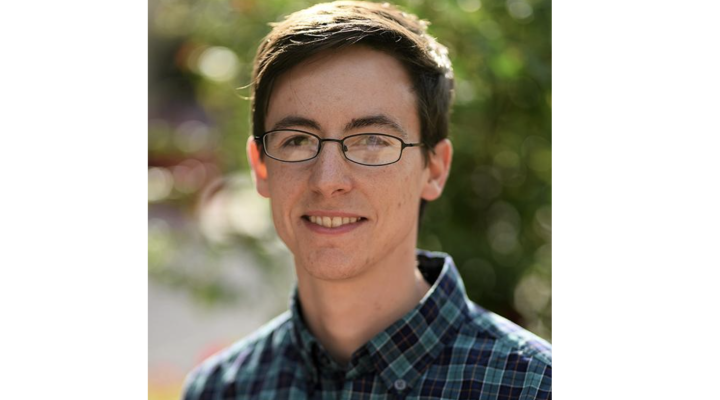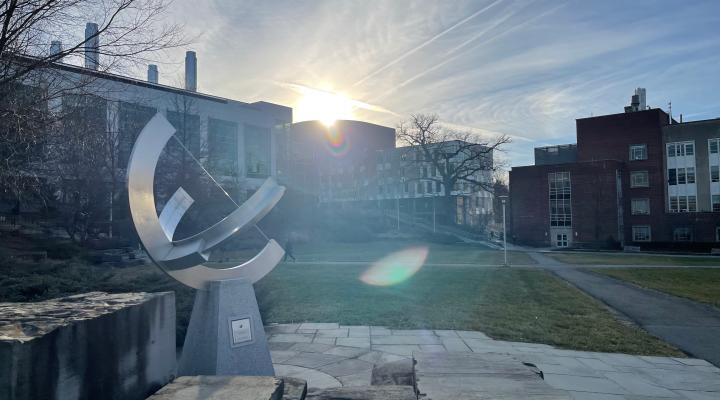When Grace Barcheck was a sophomore at Washington University in St. Louis, she took a geoscience class that changed her life. You can trace a direct line from that class to her current position as one of the newest members of the faculty at Cornell’s Department of Earth and Atmospheric Sciences.
Barcheck’s parents are both artists and until she took that geoscience class, nothing had caught her full attention the way art did. In fact, she was majoring in art at the time. She was minoring in environmental studies and the geoscience class was a revelation. “I found it so interesting—I really loved it,” Barcheck said. “And the professor told me I was very good at it and should take more classes in the field.”
Rather than simply take more classes, Barcheck changed her major and earned a B.S. in Earth and planetary science. After graduation she took a job as a laboratory assistant with a seismology researcher from Washington University. In that position Barcheck helped create a database of Antarctic seismicity. More meaningfully, she was part of several field expeditions to gather seismic data in Antarctica, Minnesota, and aboard a ship over the Marianas Trench.
After two years in the position, Barcheck decided to pursue a doctorate in Earth sciences at the University of California, Santa Cruz with a focus on using seismology to understand ice stream basal processes and stick-slip sliding. At Santa Cruz, Barcheck worked with Professors Slawek Tulaczyk and Susan Schwartz, combining seismology and glaciology. The combination enabled her to get back to Antarctica for more field work, studying sub-glacial lakes and putting an array of sensors on the ice sheet. This work resulted in several papers and was the basis for Barcheck’s doctoral thesis.
After graduating from UC Santa Cruz, she moved to Ithaca and started a position as a research associate with a specialty in glacial seismology. In 2022 Barcheck had a post-doctoral research position at the University of Idaho and in 2023 she joined the faculty at Cornell as an assistant professor.
“Cornell has such a long history of studying plate tectonics,” Barcheck said. “It is exciting to become part of that tradition and to carry it on, but with a new perspective and new tools that allow us to focus on parts of the system that we don’t understand very well yet.”
In her current research, Barcheck employs geophysics, seismology, and machine learning to observe and understand sliding and deformation in a variety of Earth systems, including deep fault zones and polar ice sheets. Her current projects include finding and analyzing icequakes beneath the Antarctic and Greenland ice sheets to understand controls on ice sheet sliding, characterizing megathrust seismicity beneath Kodiak Island, AK with a dense nodal seismic array, and using machine learning to improve marine earthquake detection offshore in subduction zones. Her work has implications for understanding two major Earth hazards: sea-level rise resulting from ice sheet changes in a warming world, and earthquake hazard.
In addition to her research, Barcheck will be co-teaching a class on Environmental Physics in the fall semester of 2023 with fellow EAS faculty member Britney Schmidt.
In her free time Barcheck likes to bike, hike, paddleboard, and spend time with her fluffy-eared dog.





